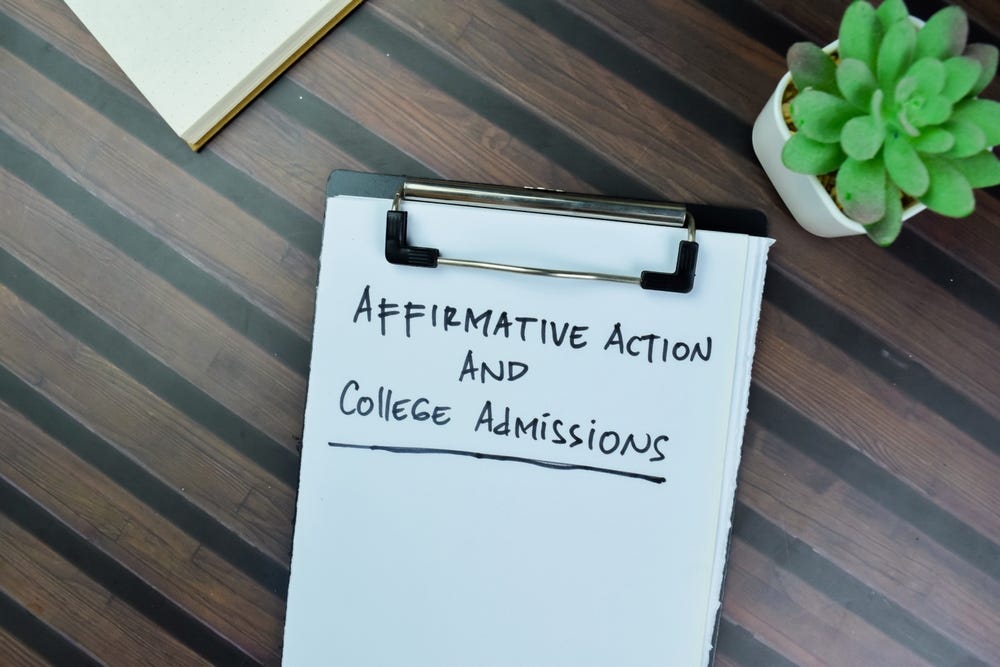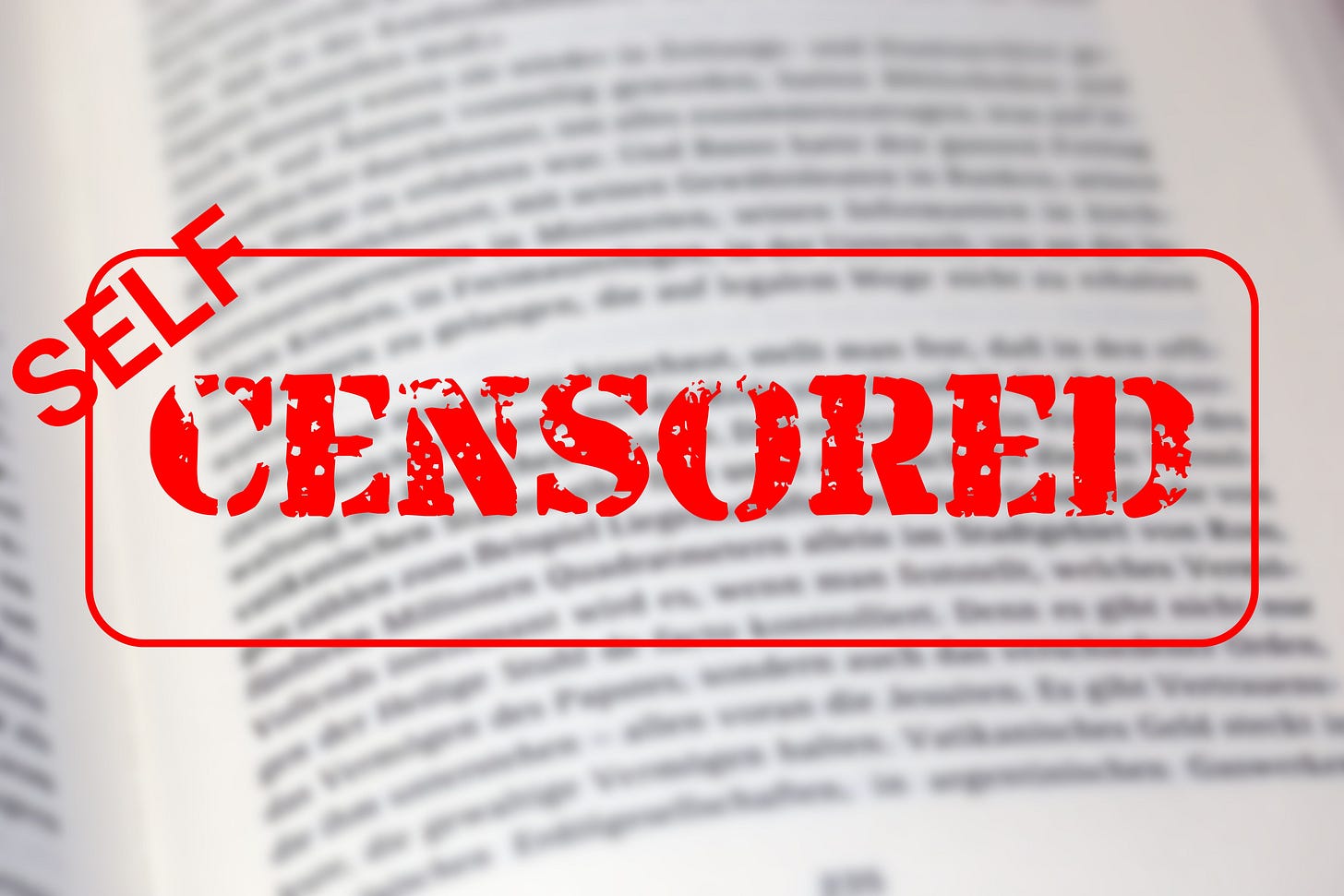E-Pluribus | June 16, 2023
America is outgrowing enforced diversity; or does it have a place?; and a book author self-bans.
A round-up of the latest and best writing and musings on the rise of illiberalism in the public discourse:
Ilya Somin: How America's Growing Diversity Weakens the Case for Racial Preferences in Education
As the Supreme Court considers the fate of affirmative action, George Mason University law professor Ilya Somin takes to the pages of Reason to detail how the country’s progress obviates the need for enforced diversity requirements.
There is a simple standard rationale for affirmative action, dating back to its origins in the 1960s: America has a long history of horrific discrimination against some of its minority groups, especially blacks and Native Americans. If not for that history, those groups would be better off than they are now. Whites, by contrast, have often benefited from that discrimination (call it "white privilege," if you will). Thus, justice requires some form of compensation to the groups that have been wronged, at the expense of those that have unjustly benefited. Various types of carefully targeted racial preferences can help provide that compensation, and enable us to achieve a more just society.
This rationale is far from air-tight. Among other weaknesses, it is wrong to assume that most whites are beneficiaries of slavery, Jim Crow, and other historical wrongs. Many were actually harmed by it (albeit, less so than blacks, of course). Some of the white victims of affirmative action policies are even members of groups that themselves faced extensive discrimination at various times. Jews are an obvious example, given the once- widespread discrimination against Jewish students at many elite educational institutions.
Still, the traditional rationale for affirmative action is compelling in some ways. Most notably, it is undeniably true that slavery, segregation, and other forms of state-sponsored discrimination inflicted terrible harm on black Americans, and some other groups. Absent that history, we would likely have fewer racial conflicts and less racial inequality today.
But, as conservative political commentator Christopher Caldwell explains in a recent New York Times article, the traditional rationale has been weakened by America's increasing racial and ethnic diversity, most notably the growing role of Asian-Americans in higher education[.]
Read the whole thing.
Timothy P. Carney: Race-conscious admission isn't always bad
On the other hand, writes Tim Carney at the Washington Examiner, perhaps conservatives should not dismiss “diversity” out of hand. While acknowledging the problems presented by such preferences, Carney says there are valid reasons for developing varied educational communities.
I think conservatives need to ask themselves some more abstract questions: Is a perfectly meritocratic admissions policy practical or desirable? Is it always morally wrong to discriminate based on race, color, or national origin?
[ . . . ]
[A]dmission to college is not a prize, it’s an invitation. Admitting an applicant is not saying “You’re the best! You won at being ages 14 to 18!” Admitting an applicant is, in effect, saying, “We believe you will really contribute to our community of learning.”
While I believe that last line, I also understand that it sounds exactly like an excuse for rank discrimination. If a co-op board used that language as part of a race-conscious framework for approving potential residents, it would be presumed by the news media and the DOJ to be a cover story for racism.
Also, my view of college admission — that it is an invitation to a community of learning, not a merit prize — won’t console a working-class daughter of a Korean immigrant who gets rejected from Harvard, which would have been her ticket to career success.
Amid all of these complexities, though, I think a conservative should grant private educational institutions — even those that receive federal subsidies — the right to define their own purpose. And according to the inevitably varied purposes of various colleges, we will have varied admissions criteria. Some of those might include race.
You may ask how admitting based on race could ever be valid. I would answer that diversity has its own value in many settings. I went to a small liberal arts college where every class was a discussion class. We all tried to stick very closely to the text before us, but humans are not robots. We all bring our own perspectives and experiences to the table. (The import of this experience is why I defended the maligned phrase “as a father of daughters.”)
Read it all.
Kat Rosenfield: Eat, Pray, Cringe: Elizabeth Gilbert Cancels Herself
Pluribus has addressed concerns with the direction of the publishing industry as a whole, but the latest example of suppression of a book is by the author herself. Kat Rosenfield writes for the Free Press about the curious case of Elizabeth Gilbert and the Russian-Ukrainian war.
Until this week, Elizabeth Gilbert was best known as the author of Eat, Pray, Love, a memoir about finding her bliss (and her appetite) in a post-divorce odyssey through Italy, India, and Bali. Now, she’s the unwitting harbinger of what appears to be a seismic change within the literary community, and perhaps in the culture at large.
Gilbert’s upcoming novel, The Snow Forest, was set in 1930s Siberia—which, as we all know, is part of Russia, which, as we all know, is the headquarters of Vladimir Putin’s ongoing and execrable war against Ukraine. As is so often the case when it comes to publishing controversies, this fourth-degree connection between American author and Russian imperialist wasn’t a big deal until, suddenly, it was: over the weekend, The Snow Forest was trashed on the book review site Goodreads in an organized campaign by people who took exception to Gilbert’s choice of setting.
As of this writing, the book has 174 reviews and 533 ratings, every single one of them one star, and most employing eerily similar language that suggests the existence of a form letter lurking behind the scenes. (Chief among the claims on the page, which has now been removed, is that Gilbert’s book, which was not slated for release until February 2024 and absolutely none of its critics have read, is guilty of “romanticizing” Russia.)
This type of coordinated effort to torpedo a book before it’s ever been published is a familiar specter in the literary community, whose most influential members are often both extremely online and extremely prone to jumping aboard whichever ostensibly progressive bandwagon is gathering steam at any given moment.
Read it all here.
Around Twitter
Here’s the beginning of a thread by Princeton professor Robert P. George based on his article in the Atlantic, “Universities Shouldn’t Be Ideological Churches”:
Via Zaid Jilani, these figures are going to further complicate the “Georgia institutes Jim Crow 2.0 on steroids” narrative:
And finally, here’s an Irish lawmaker advocating “restricting freedom” to provide people “safety” from feeling “deep discomfort” (click for video):










